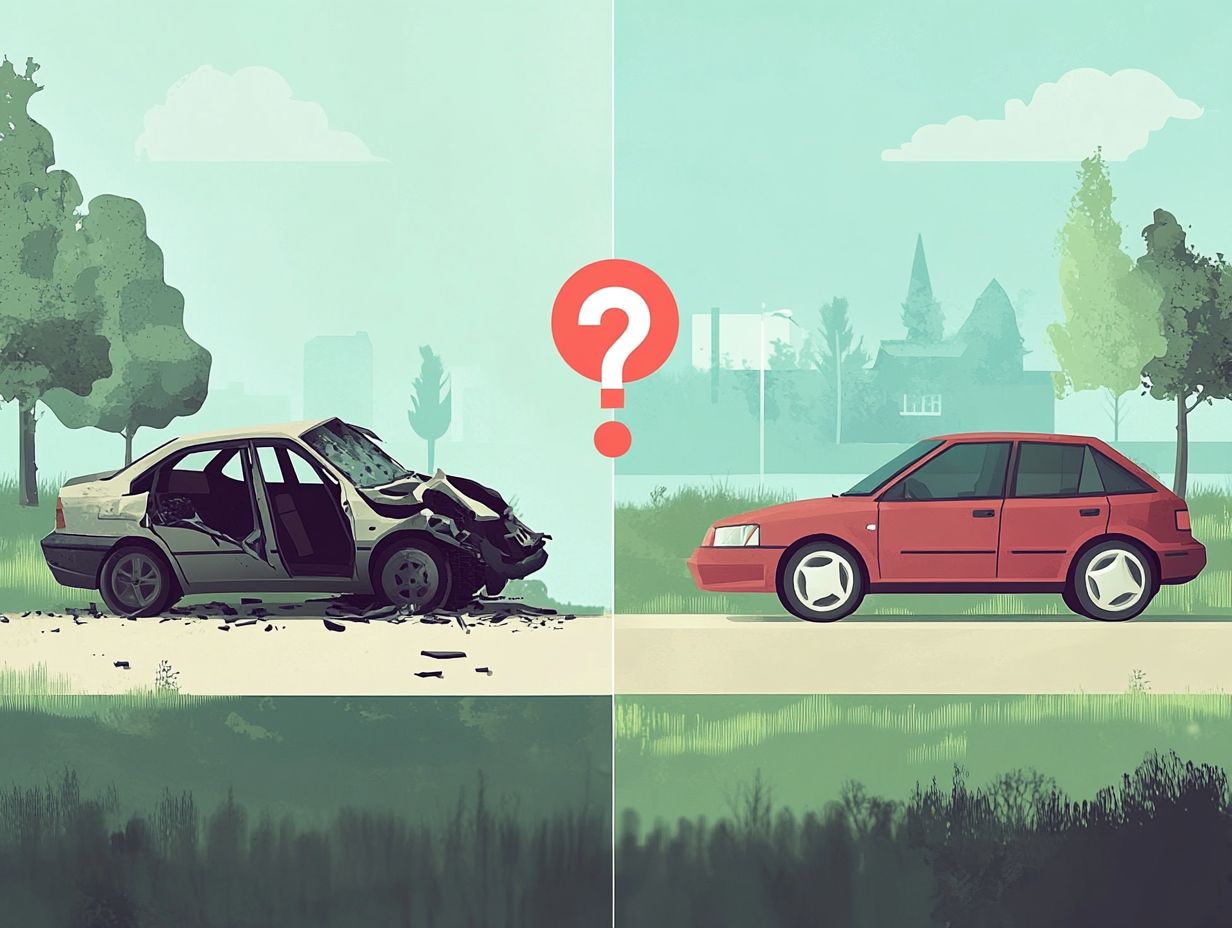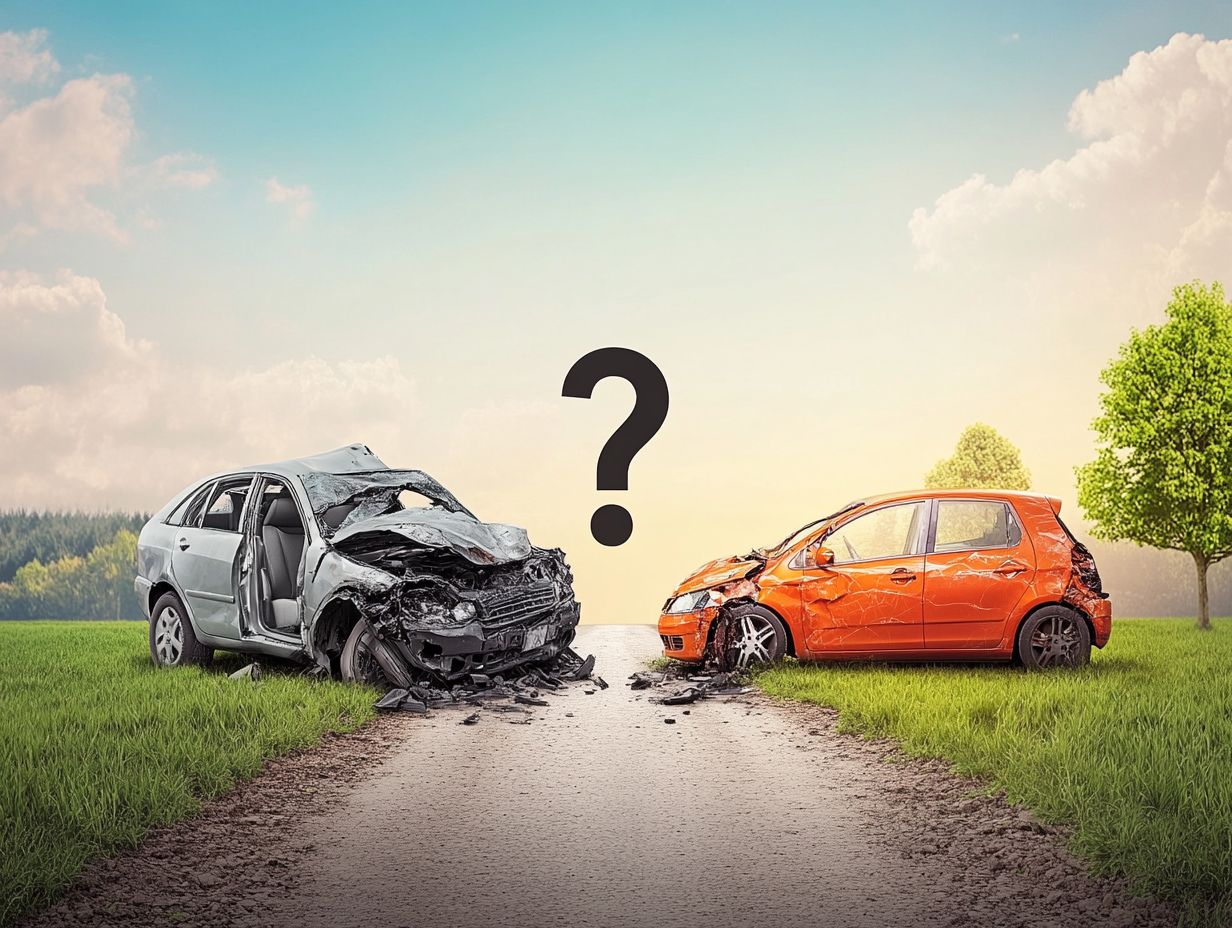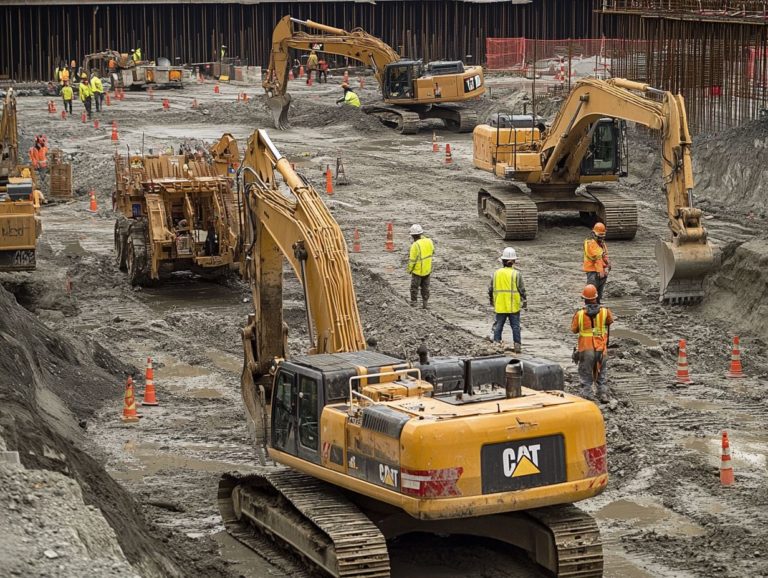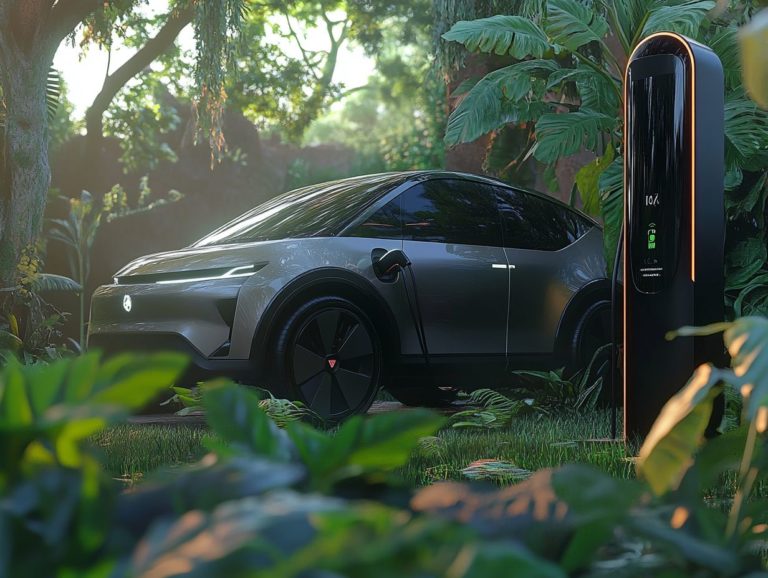Collision vs. Comprehensive: Which is Right for You?
When it comes to car insurance, understanding the differences between collision and comprehensive coverage is crucial for making informed choices.
Each type serves a distinct purpose, offering protection against various risks you may encounter on the road.
This article explains their definitions, key differences, and factors to consider based on your vehicle and lifestyle.
You’ll also find guidance for assessing your coverage needs and tips to select the right policy tailored to your unique circumstances.
Whether you’re a new driver or refining your existing coverage, this guide provides the insights you need.
Contents
- Key Takeaways:
- Understanding Collision and Comprehensive Coverage
- Factors to Consider When Choosing Coverage
- Cost Comparison of Collision and Comprehensive Coverage
- Determining Your Coverage Needs
- Tips for Choosing the Right Coverage
- Frequently Asked Questions
- What is the difference between collision and comprehensive coverage?
- Do I need both collision and comprehensive coverage?
- Which type of coverage is more expensive?
- What factors should I consider when choosing between collision and comprehensive coverage?
- Will collision or comprehensive coverage cover damages caused by someone else?
- Can I switch between collision and comprehensive coverage?
Key Takeaways:

Understanding Collision and Comprehensive Coverage
Understanding the differences between collision and comprehensive coverage is essential for any vehicle owner.
Collision insurance protects you from damages incurred in accidents with another vehicle or object like guardrails.
Comprehensive insurance covers losses from non-collision events, such as theft, natural disasters, fire, vandalism, and unexpected encounters with wildlife.
Knowing these distinctions helps you choose the right policy that meets your vehicle protection needs.
Definition and Differences
Collision and comprehensive insurance play distinct roles in auto insurance.
Collision coverage acts as your safety net for damages from accidents, regardless of blame.
Comprehensive insurance protects against losses from events like theft, vandalism, or natural disasters.
Understanding these two types of coverage enables you to make informed choices about your insurance needs.
Factors to Consider When Choosing Coverage
Selecting the right auto insurance coverage requires careful consideration of several key factors.
Factors like your vehicle’s age and value are crucial in determining whether collision or comprehensive coverage is necessary.
If you own a newer model, specialized coverage may be needed to protect against higher repair costs.
For older vehicles, a balanced policy could be more advantageous, taking into account your driving habits and location.
Vehicle Age and Value

The age and value of your vehicle significantly influence the type of insurance coverage you should consider.
For older vehicles, investing heavily in collision insurance may not make sense.
As your vehicle depreciates, its market value decreases, which impacts the necessity for comprehensive insurance.
If your vehicle is older, the repair or replacement costs often fall below full coverage premiums.
Many drivers consider opting for liability insurance only for sufficient protection without high premiums.
Remember, while a decrease in value may lessen your insurance needs, it also means that any claims will yield a smaller financial return.
Driving Habits and Location
Your driving habits and location are crucial elements that can profoundly influence both collision and comprehensive insurance.
If you find yourself frequently navigating city streets, you re likely facing a heightened risk of accidents due to congestion and the unpredictable antics of other drivers. This can lead to a surge in collision claims.
On the other hand, while highway driving is generally safer, it brings its own set of challenges, such as the potential for higher-speed accidents.
The geographical area where you reside also plays a pivotal role in your insurance considerations. Urban environments often experience elevated rates of auto theft, while regions susceptible to natural disasters may prompt you to opt for comprehensive coverage.
Understanding these points can help you make more informed decisions when selecting the right type of insurance to suit your distinctive driving situations and habits.
Cost Comparison of Collision and Comprehensive Coverage
When you’re evaluating auto insurance, it’s essential to grasp the cost distinctions between collision and comprehensive coverage. This knowledge is crucial for making informed financial choices about your premiums and deductibles.
Collision coverage usually comes with varying premium rates and deductible amounts, which differ from those of comprehensive insurance. The risks inherent in each can vary widely.
Factors such as your vehicle’s condition and your driving history play a significant role in these variances, making it vital for you to understand them fully.
Premiums and Deductibles
It’s important to understand how your insurance premiums relate to your deductibles when evaluating collision and comprehensive coverage.
Opting for higher deductibles often results in lower premium rates, allowing you to save some cash in the short term. However, this trade-off could lead to higher out-of-pocket expenses if you need to file a claim.
If you choose a lower deductible, you may face higher monthly premiums, which offers peace of mind but could result in a soaring total cost over the years.
Taking the time to weigh these factors carefully can guide you toward the most financially sound strategy.
Determining Your Coverage Needs

Determining your auto insurance coverage needs requires a careful assessment of personal risk factors that can greatly influence both collision and comprehensive insurance.
Consider factors like your driving history, which can indicate the likelihood of accident-related damages, as well as the potential risks of theft or damage from natural disasters.
By evaluating these elements, you can select the right level of protection for your vehicle, ensuring peace of mind on the road.
Assessing Personal Risk Factors
Assessing your personal risk factors is essential for determining the right auto insurance coverage you need for both collision and comprehensive insurance.
Understanding these factors can dramatically influence your choices regarding the type and extent of coverage required. Your driving behavior, such as how often you commute and your accident history, plays a pivotal role in how risk assessors view your situation.
Your geographic location also matters; it can dictate the likelihood of weather-related damages or theft, affecting the need for comprehensive coverage.
Also, think about how much your vehicle is currently worth. Newer, more expensive cars often require more robust protection through both collision and comprehensive policies.
Customizing your coverage to fit your unique circumstances ensures that you re adequately protected in an unpredictable world.
Take the first step today review your driving habits and coverage needs to ensure you’re protected!
Tips for Choosing the Right Coverage
Selecting the perfect coverage options for your auto insurance can feel like navigating a labyrinth. But with a few strategic tips, you can effortlessly secure the best protection for your vehicle.
Begin by comparing policies for collision and comprehensive coverage, which are two types of auto insurance. Be sure to consider the distinct features of each. Reflect on your personal circumstances like your driving habits and location to ensure you are covered against a range of potential risks.
This thoughtful approach will enable you to make informed decisions tailored to your needs.
Factors to Keep in Mind
When selecting auto insurance coverage, several essential factors should be considered to ensure you choose the best options for your unique needs.
Your driving history plays a significant role in determining the type of coverage that suits you. A clean record often qualifies you for lower premiums, while past accidents or violations might indicate a need for broader protection.
The age of your vehicle is also crucial. Newer cars typically benefit from comprehensive coverage to guard against theft or damage, while older models may require a different approach.
Consider your driving environment, whether it s busy or quiet. This can help you tailor a policy that effectively mitigates potential risks related to collision and comprehensive coverage.
Frequently Asked Questions

What is the difference between collision and comprehensive coverage?
Collision coverage helps pay for repairs if you’re in an accident, while comprehensive coverage covers other damages, like theft, vandalism, or natural disasters.
Do I need both collision and comprehensive coverage?
You don t have to have both coverages, but having both gives you complete protection against potential damages to your vehicle.
Which type of coverage is more expensive?
Generally, comprehensive coverage is more expensive than collision coverage because it covers a wider range of incidents.
What factors should I consider when choosing between collision and comprehensive coverage?
Consider the value of your car, your driving habits, and the likelihood of certain incidents in your area. A higher-value car or living in an area prone to natural disasters may warrant comprehensive coverage.
Will collision or comprehensive coverage cover damages caused by someone else?
If the other driver is at fault for the accident, their liability insurance should cover the damages. However, comprehensive coverage can cover damages caused by natural disasters, vandalism, or theft, even if someone else is at fault.
Can I switch between collision and comprehensive coverage?
Yes, you can switch between the two types of coverage. It s important to have the right coverage at all times, so consult with your insurance provider before making any changes to your policy.






